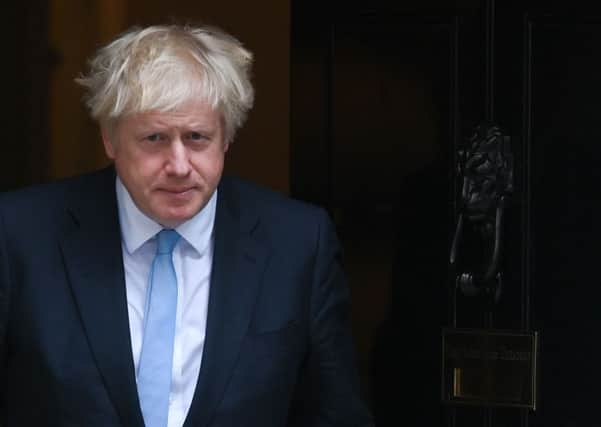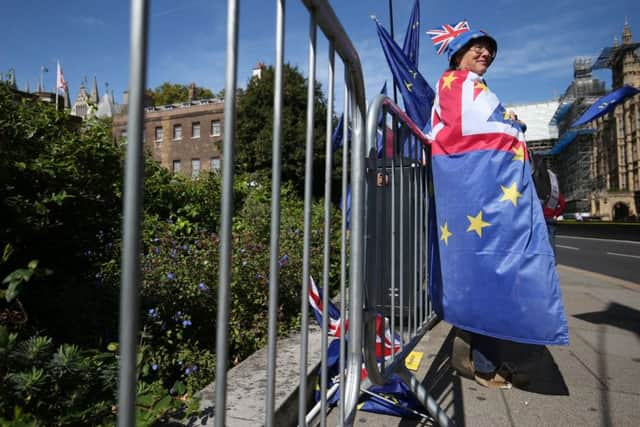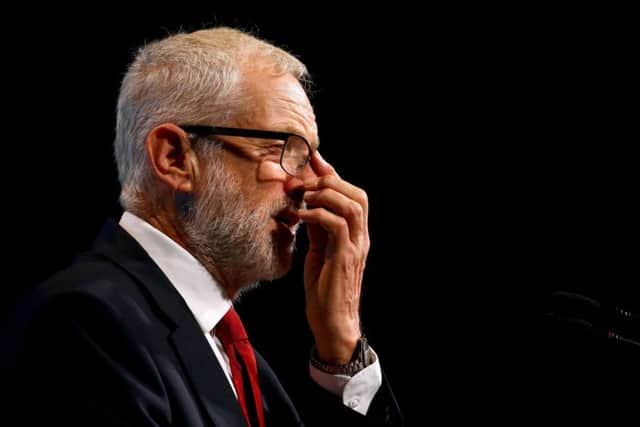Why resigning as PM over Brexit might be Boris Johnson’s best ‘do or die’ election option according to polls – Ed Jacobs


While he has sought to emphasise that the Government would much prefer to leave with a deal, the mood music from the rest of EU, and his now former Work and Pensions Secretary, Amber Rudd, has been sceptical of his efforts to date.
Advertisement
Hide AdAdvertisement
Hide AdThe strategy of the PM and his chief of staff Dominic Cummings is predicated on a belief that the public – if faced with a choice – would be prepared to accept a no-deal Brexit over a further extension to the Article 50 process. The question is how sure they should be that such a strategy will work? The answer is: not very. In analysis for The UK in a Changing Europe, Professor Sir John Curtice, one of the most respected pollsters, has crunched the numbers.


Unsurprisingly, leaving without a deal is popular with those who backed Brexit in 2016 while between 75 and 80 per cent of those who voted Remain are opposed to leaving without a deal.
Taking the electorate as a whole, he notes that those opposed to a no-deal Brexit just about outnumber those in favour of one. Why? A key reason is that those who did not vote in the 2016 referendum, are, Professor Curtice writes, “on balance, more likely to oppose than support a no-deal Brexit”.
Advertisement
Hide AdAdvertisement
Hide Ad

How strongly do people feel about the issue? According to polling by YouGov just 22 per cent of all voters thought no-deal would be a ‘‘good outcome’’, with 49 per cent saying it would be a bad one. Just 16 per cent thought it would represent an ‘‘acceptable compromise’’.
Perhaps most surprisingly, around one in five of those who voted to leave in 2016 told YouGov that they would “be angry, betrayed or disappointed were the UK to leave the EU without a deal”.
Going into a general election on the back of no-deal would, therefore, prove to be a very risky strategy and explains the Prime Minister’s stronger language on Monday with Irish PM Leo Varadkar.
Advertisement
Hide AdAdvertisement
Hide AdWith an election on Boris Johnson’s terms now out of the window, the question is what a post-October 31 election might look like. Three possible scenarios would exist.
One would be an election on the back of a deal that Boris Johnson had been able to agree with fellow EU leaders and which had secured the support of Parliament. This would be the Tory party’s ideal scenario, enabling it to focus on parking its tanks on Labour’s lawn in respect of spending on the NHS, education and the police.
The second scenario would be an election in the wake of no-deal. This would be extremely risky given the polling. An election in the midst of food or medicine shortages would not be ideal for Conservative HQ.
This brings us then to scenario three – an election on the back of Boris Johnson having requested a three month extension to Article 50 as required under the terms of Hilary Benn’s so-called Brexit Delay Bill.
Advertisement
Hide AdAdvertisement
Hide AdThis would be Nigel Farage’s greatest opportunity as Leave-supporting voters give up on the Tories delivering Brexit and put their hope in the Brexit Party. According to polling by ICM, while the Conservatives currently have a seven point lead over Labour, both parties poll at 28 per cent if there is an extension.
The Brexit Party is on 18 per cent, but this could increase to a level close to what they achieved in the European Parliamentary election (32 per cent). It is more likely that in certain seats they could either actually win or split the Brexit vote, letting Labour or Lib Dem candidates win.
For Labour, an election in the wake of an extension to Article 50 also represents its best hope of making it into government somehow. However, with a another poll showing voters would prefer no-deal to Jeremy Corbyn becoming Prime Minister, Labour would do well to consider how much better it could be doing under another leader.
For Boris Johnson, resignation might be his best bet as his options run out. Under such a situation, he could advise the Queen to send for Jeremy Corbyn ensuring that it is Labour, and not the Conservatives, who take the flack for extending Article 50. It is why the next election is set to be the most unpredictable yet.
Ed Jacobs is a political consultant at The Public Affairs Company in Leeds.